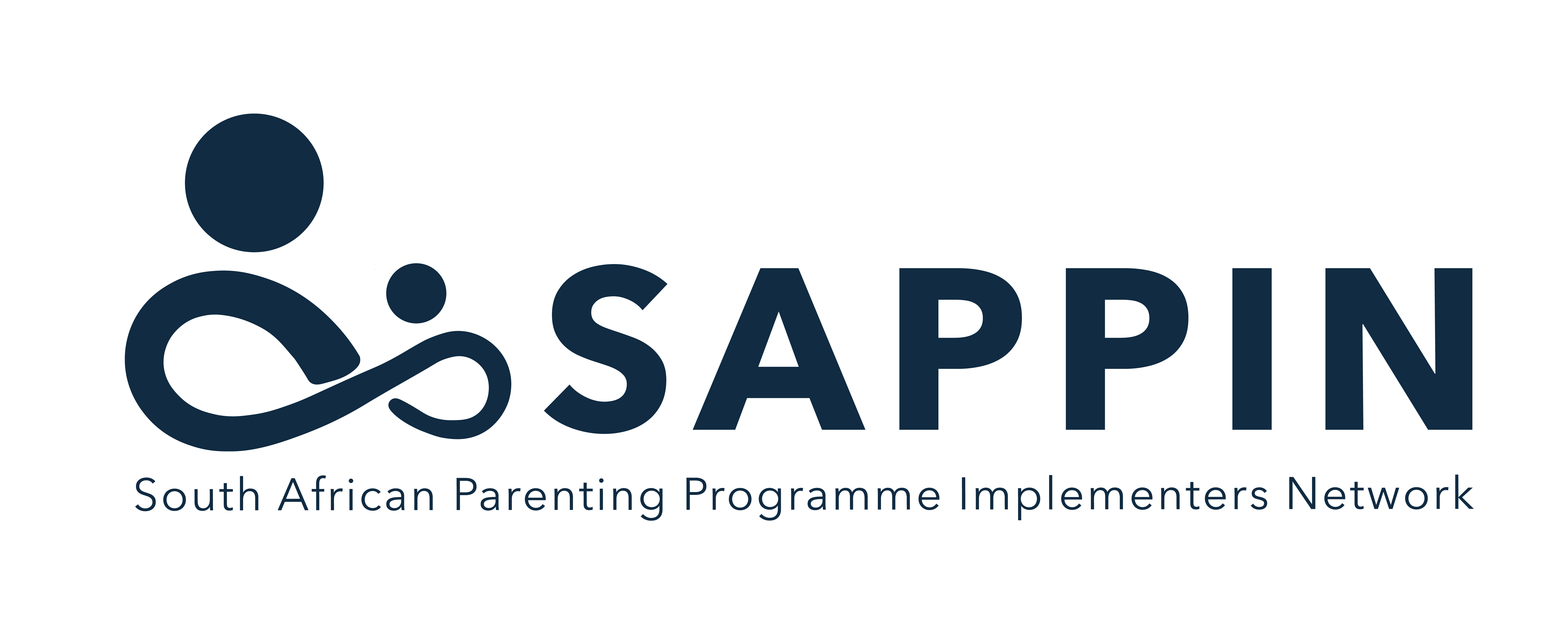
Our purpose is to strengthen the voice of civil society working with families through collaboration and shared learning.
SAPPIN aims to enhance civil society’s capacity in the realm of implementation, research, fundraising, communication and advocacy to collectively ensure that quality programmes are available and sustainable across the country in communities where they are needed.
SAPPIN exists to contribute to a larger theory of change by linking to South African and international policies for the protection and security of children, and the prevention of violence in childhood. Positive parenting interventions, informed by these policies, have proven to have a direct link to the reduction of violence within homes and the promotion of alternative disciplinary strategies, contributing to more securely attached children. These children have increased resilience and have more improved opportunities for a better future, impacting all of South Africa.
SAPPIN is convened by a driver group, elected by the network, that is primarily responsible for:
The evidence-based interventions implemented by SAPPIN members across South Africa help children reach their full potential as resilient and secure future adults, to benefit all who live in South Africa.
Programmes offered by member NGOs are designed to support families through all stages of a child’s life, from conception and the first 1000 days, through to adulthood. SAPPIN promotes cross-provincial training, which leads to capacity-building and shared experiences which better serve families in need.
Johannesburg Parent and Child Counselling Centre (Central)
Lefika la Phodiso (Johannesburg)
Phaphama Initiatives (Soweto)
Ububele Educational and Psychotherapy Trust
Katharine Frost - Independent Consultant
Sonke Gender Justice (Gauteng)
Ububele (Alexandra)
Joburg Child Welfare
JPCCC
Clowns Without Borders South Africa (Durban)
Dlalanathi (Pietermaritzburg)
Save The Children South Africa (Durban)
Clowns Without Borders South Africa (Cape Town)
The Parent Centre (Cape Town)
COAST
Mikhulu Trust
The Seven Passes Initiative (George and Surrounds)
Usapho
Clowns Without Borders South Africa
Tales of Turning
SOS Children's Villages
SONKE
Save the Children SA
The Institute for Security Studies

Guest 1:
Matakenye Matakanye
General Secretary of the National Association for School Governing Bodies
Guest 2:
Mary Metcalf
Education expert
Guest 3:
Katharine Frost
Educational psychologist, in private practice and SAPPIN

Guest:
Katharine Frost
Educational psychologist, in private practice and SAPPIN
The Research Portfolio aims to pioneer important, but previously low-priority research topics relevant to the Parenting sector. The research portfolio is grappling with the “the evidence-based agenda” – they are asking the questions around what constitutes evidence, why evidence from academia is more highly valued over implementers’ years of “on-the-ground evidence”, and so on. The portfolio has collated evidence from the SAPPIN implementers and, are writing a formal research paper on their findings. The paper will be submitted to the Southern African Journal of Health before submission to an international publication. The portfolio will also explore implementation and what that involves.
The purpose of the Advocacy Portfolio is to define SAPPIN’s advocacy agenda, and to create and pursue advocacy opportunities. The main focus for the Advocacy Portfolio is to crystalise a succinct Advocacy Statement for SAPPIN. This will set the stage at the first SAPPIN Families Indaba, helping to inform the themes and key participants needed for a productive event. The advocacy portfolio also participates in regular forums, working groups, conferences and ad-hoc meetings to advocate for parenting programmes, parent support, parenting principles and relevant research as a necessary part of creating a better South Africa for all. We are currently represented on several platforms to which parenting is relevant, including the Education, Health and Child Protection sectors.
The Capacity Building Portfolio has, as its focus, building the capacity of member organisations within the network. This includes supporting those organisations that do not, as yet, meet the criteria for membership. Capacity building includes a training exchange so that member organisations have additional training on offer as well as a wellness component so that all organisations have some or other supervision embedded in their organisation.
A primary goal of this portfolio is to ensure that all SAPPIN organisations meet all SAPPIN criteria. A secondary goal is to support members to take up existing evidence-based parenting programmes, while supporting the sustainability of SAPPIN organisations.
The purpose of the Finance Portfolio is to drive SAPPIN’s fundraising and financial goals. The finance portfolio is designing a 3 – 5 year plan, focusing on the priorities identified by the group. They are also working on a costing model to guide the training activities internal to the network.
The finance portfolio is responsible for identifying and pursuing funding opportunities, with a current focus on;
The portfolio is also exploring the licensing of the SAPPIN programmes, as a means to support programme fidelity and possible future revenue streams.
The Communication Portfolio supports the SAPPIN network through a comprehensive communication strategy, designed to bring the (currently) 14 independent member partners closer together, as well as providing communication and business tools to support the network. Website updates, newsletters and the development of social media strategies, all contribute towards establishing SAPPIN as a leading voice in the sector.
The communication portfolio also supports the Network to produce their annual Families Indaba. This important event will become an annual landmark to communicate the work of the Network within the sector.
The purpose of the Membership Portfolio is to define how SAPPIN engages with, and supports its members. The portfolio focuses on defining the categories of, and criteria for membership. The portfolio also strives to support new members in meeting any unmet criteria they may have and to help them align to the SAPPIN values.
The Indaba Portfolio is responsible for the full preparation of SAPPIN’s annual Families Indaba. The inaugural event is taking place in October 2022. Tasks include fundraising, event design and support of our marketing and communications plan for the preparation of a unique, experiential and impactful Indaba.
The annual Families Indaba seeks to create a platform to share and learn from best practice parenting work, and advocate for government and funders to support parenting as a key element of all education and violence-prevention strategies in South Africa.

Wilmi Dippenaar is the Director of SAPPIN. The South African Parenting Programme Implementers Network. Before she accepted this position in October 2023, she was the Director of Seven Passes Initiative, a community-based organisation in Touwsranten in the Western Cape. She has directed the organisation for the eight years. Apart from violence prevention, her special interest is in mental health.
She has a degree in Child and Youth Development from the University of South Africa and worked as a therapeutic consultant for Child and Family Welfare for many years. She has a Masters Degree in Implementation Research at the University of Western Cape. She has co-authored several articles and presented on violence prevention at numerous occasions.

Suzan Eriksson is Co-Director at Clowns Without Borders South Africa since 2018 and joined the SAPPIN Driver Group in 2023. She is committed to the vision of SAPPIN, strengthening the voice of civil society to prevent violence against children and adolescents, as well as finding solutions to enhance their wellbeing and future lives.
She has 20 years of experience working with the non-governmental and public sector, as well as UNHCR and UNDP with refugees, children and education all over Africa. She has a MSc from London School of Economics in sociology, politics, and complex emergencies.

Mahlatse Diale is a BA Honours degree holder in social sciences from the University of Johannesburg and she enjoys gaining knowledge, experience and skills that enables her to make a difference in the lives of individuals and communities.
She is currently working at the Johannesburg Parent and Child Counselling Centre (JPCCC) where her main focus is providing therapy to children, adolescence, adults, parents and couples to help them process and effectively manage or resolve any issues affecting their well-being.
Mahlatse has prior experience working the government Department of Social Development from 2010 until 2015 in a statutory field. During this time she was working mainly with orphaned, abused and abandoned children who needed alternative homes. This highlighted the need to work towards an effective way to enhance the overall well-being of children and their families. It is my view that this can be done well by working with parents in their approach to parenting and in so doing improving the quality of life of their children and ultimately the adults they will become.
Mahlatse is generally passionate about social justice and social policy – people being able to access the resources they need in order to better their physical, Psychosocial and Scio-economic circumstances. She desires to assist people heal from past and present traumas; care for their mental health, and gain the necessary skills they need to continually develop themselves and thrive.